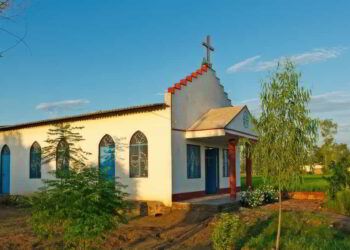Alisha gave a furtive look over her shoulder as she prepared to fetch water across the railroad tracks. If she was caught, she knew she would be punished. Crossing the tracks was illegal…and dangerous. But her family needed water to drink, to survive, and this way was the shortest route to the nearest well. Water, that precious and valuable commodity of life, was worth the risk and punishment, but still Alisha hoped she wouldn’t be caught.
Alisha lived with her husband and two children in a hut located in a slum made up of around 100 families that depended on manual labor for their income. The water scarcity in their village made slum life only more difficult, especially when it meant spending a good portion of the day walking just to get a few gallons of water that was possibly laden with disease-causing bacteria.
“In all their struggles,” reported a GFA-field correspondent, “much time was spent to fetch water, and Alisha’s family and other people could not concentrate on their work, which brought financial problems in their lives.”











